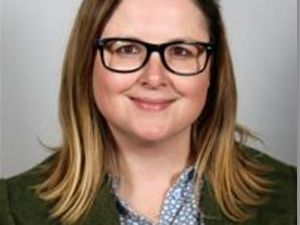Referrals to Shropshire housing association's debt advice service jump by over a fifth
The number of people referred to a Shropshire housing group's debt advice service has jumped 22 per cent in the past year.
Watch more of our videos on ShotsTV.com
and on Freeview 262 or Freely 565
The statistic was revealed as the Wrekin Housing Group said it had helped its tenants clear £3 million of debt in the past five years thanks to the work of its in-house advice team.
Official insolvency statistics released by the government this week showed that across the country last month, the number of bankruptcies was up 25 per cent compared to this time last year, while debt relief orders - a process designed to help people with severe debt problems - also spiked by 23 per cent year-on-year.
Research carried out by the Trade Unions Council (TUC) earlier this year also revealed the UK was experiencing the largest annual rise in household debt since records began in 1987, with the average household expected to rack up an extra £1,600 in unsecured debt over the course of the year.
“Referrals to the Money Matters team are up 22 per cent compared to this time last year, and the levels of debt people were presenting with is also on the rise," said Dan Bebbington, debt and energy manager at The Wrekin Housing Group.
"This [£3m] milestone highlights the significant financial challenges many of our customers are facing, but it also demonstrates the importance of the support we provide.
“Our debt advice team offers a non-judgmental, confidential service that helps people regain control of their finances and frees them from the stress and worry that living with debt can cause.
“We’re proud to have made such a positive difference to the lives of so many.”
As well as debt, the group says its Money Matters team supports Wrekin customers with things like budgeting, energy advice and accessing benefits, and has supported almost 1,000 customers with debt advice over the last five years to help them address immediate financial issues and develop long-term stability.
In polling carried out on behalf of the TUC in June, about a fifth of more than 2,000 respondents said they had fallen behind on household bills. That number rose to more than one in four people in the 18-24 age category.
More than four in ten people surveyed said they had cut back on essentials such as food and utility spending this year, while 60 per cent said they had reduced non-essential spending, including dining out and entertainment.
Over a quarter (27 per cent) said they had taken out debt (loans, credit) to cover unexpected bills since the start of the year.





